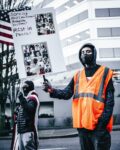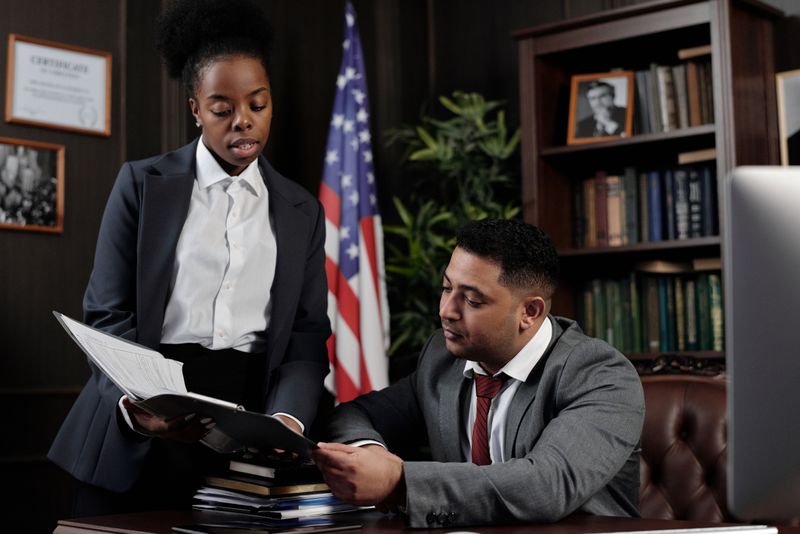The Sentencing of Former Proud Boys Leaders Raises Questions about Extremism and Consequences
Introduction
In a significant development in the aftermath of the January 6 assault on the U.S. Capitol, two former leaders of the Proud Boys, Joseph Biggs and Zachary Rehl, were sentenced by U.S. District Judge Timothy Kelly. Biggs was sentenced to 17 years in prison, while Rehl received a 15-year prison term. These sentences mark some of the longest yet for individuals charged in connection with the violent events on that fateful day.
The Jan. 6 Assault and Prosecutors’ Approach
The prosecutors characterized Biggs as a “vocal leader and influential proponent” of the Proud Boys’ shift toward political violence. They argued that Biggs understood the tactical advantage his force had during the assault and the significance of his actions against his own government. They also cited Biggs’ increasingly threatening and violent rhetoric leading up to the attack, as well as his celebration of it afterwards.
Meanwhile, Rehl was described as having played a key logistical role in the assault and having used force and violence to influence the government. His actions were considered particularly egregious, as he sprayed a police officer with a chemical irritant and then perjured himself 14 times during trial.
In seeking significant sentences for both men, prosecutors emphasized the need for deterrence. They argued that harsh punishments would send a clear message to extremists that similar attacks against the government would not be tolerated and would be met with severe consequences. Assistant U.S. Attorney Jason McCullough stated during the hearing that the aim of the attackers was to intimidate and terrify elected officials, law enforcement, and the country at large.
The Defense’s Arguments
Biggs’ attorney, Norm Pattis, argued for leniency, claiming that many of the statements attributed to his client should be protected under the right to free speech. He also argued that the crimes were overstated and that the case was overproven.
Both Biggs and Rehl sought forgiveness during their statements to the court. Biggs became emotional and disputed the characterization of him as a “terrorist,” expressing remorse for his actions and begging for leniency so he could care for his daughter. Rehl also pleaded for mercy, stating that he was done with politics and called January 6 a “despicable day.”
Philosophical Discussion: Extremism, Consequences, and Radicalization
The sentencing of former Proud Boys leaders raises important philosophical questions about extremism, consequences, and the processes of radicalization. One aspect worth considering is how these individuals arrived at a point where they resorted to political violence. Extremist ideologies often flourish in an environment of social and political polarization, where individuals feel alienated and marginalized. They may perceive themselves as warriors defending a cause, and in the case of the Proud Boys, their extremist views are rooted in a toxic mix of misogyny, racism, and authoritarianism.
Furthermore, the role of group dynamics cannot be understated. The Proud Boys provided an environment in which like-minded individuals could feed off each other’s radicalization, share violent fantasies, and ultimately, plot and carry out acts of violence. The court’s recognition of these dynamics is evident in the references to the “Ministry of Self Defense” and the planning team that evolved into the Proud Boys’ Jan. 6 ground operation.
However, it is crucial to balance an understanding of the factors that contribute to radicalization with accountability for the actions taken. The prosecutors’ argument for deterrence highlights the need to hold individuals responsible for their participation in violent acts aimed at undermining democratic institutions and intimidating elected officials. The Jan. 6 assault on the U.S. Capitol was an attack on the foundations of American democracy, and those who engaged in it must face the consequences of their actions.
Editorial: Balancing Justice and Rehabilitation
Finding the appropriate balance between justice and rehabilitation is essential when considering the sentencing of individuals involved in extremist activities. The severity of the crimes and the need for deterrence cannot be ignored, particularly in cases where violence was perpetrated against the institutions that form the backbone of democratic governance. However, it is also crucial to recognize the potential for rehabilitation and the duty of society to address the underlying factors that contributed to these individuals’ radicalization.
By imposing significant prison sentences, the court sends a strong message about the gravity of the crimes committed on January 6. It is a way of underscoring that violent attempts to subvert democracy will not be tolerated. However, as a society, we must also invest in strategies for deradicalization and reintegration. While it is necessary to hold individuals accountable, the ultimate goal should be to prevent the cycle of violence and extremism from perpetuating itself.
Advice: Confronting Extremism and Fostering Resilience
The sentencing of former Proud Boys leaders should serve as a wake-up call for society to confront the rise of extremism and take proactive measures to prevent radicalization. This includes addressing the underlying factors that contribute to the disillusionment and alienation felt by individuals susceptible to extremist ideologies.
Education plays a crucial role in countering extremism. Promoting critical thinking, media literacy, and empathy can help individuals develop resilience against extremist narratives and challenge divisive beliefs. Encouraging open and respectful dialogue, fostering inclusive communities, and emphasizing shared democratic values are all essential in building resilience against radicalization.
Additionally, it is imperative that law enforcement agencies and social media platforms collaborate to identify and disrupt extremist networks effectively. Early intervention, coupled with targeted support and resources for individuals at risk of radicalization, can help prevent them from being pulled further into the world of extremist ideologies.
Ultimately, addressing the roots of extremism requires a comprehensive approach that encompasses both prevention and accountability. By balancing justice and rehabilitation, we can work towards a society that rejects violence, fosters empathy, and upholds democratic values. Only through such concerted efforts can we hope to prevent future acts of political violence and protect our democracy.

<< photo by Arno Senoner >>
The image is for illustrative purposes only and does not depict the actual situation.




